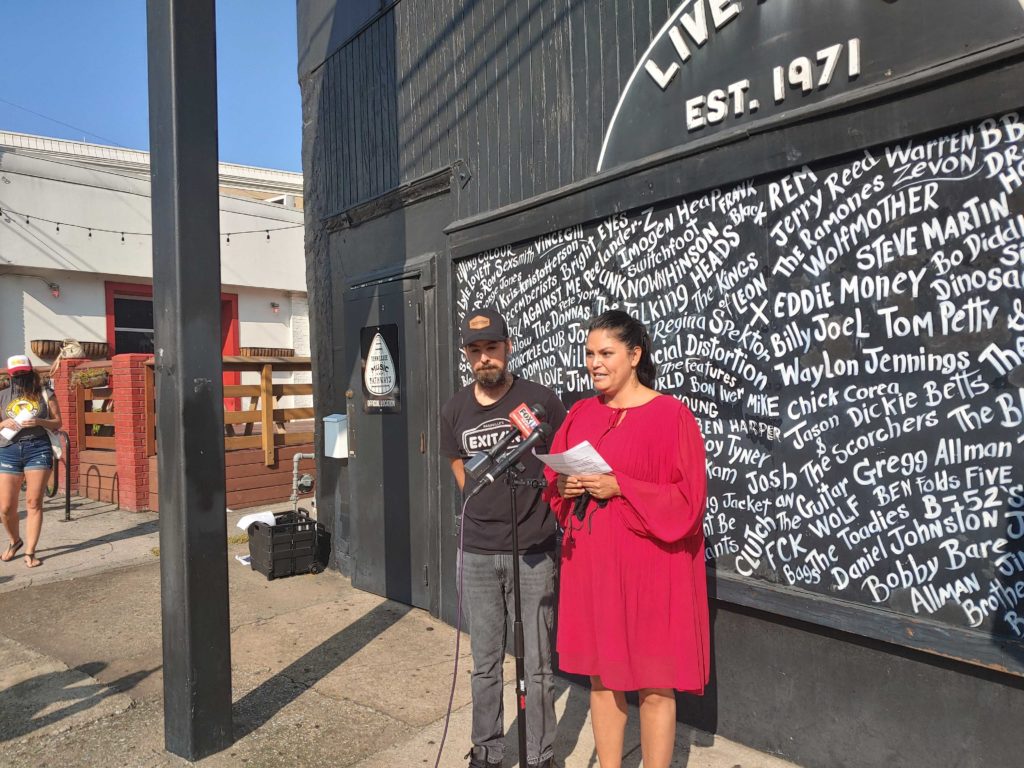
Since 1971, Nashville’s Exit/In has been a place where artists such as Johnny Cash, Kings of Leon and The Red Hot Chili Peppers have performed in front of excited crowds.
But in March, the Exit/In stopped hosting concerts. Telishia Cobb, one of the owners of the Exit/In, told reporters Thursday the business’s bank account is empty and that their employees are now facing evictions.
“We are facing the extinction of an entire ecosystem and industry that is responsible for American music culture,” Cobb said. “We cannot lose this.”
Since the start of the pandemic, about 5,000 independent music venues across the country temporarily closed, according to Cobb. Six months later, many are still closed.
Cobb is calling on Congress to pass the Save Our Stages (SOS) Act, and the Reviving the Economy Sustainably Towards A Recovery In Twenty-twenty (RESTART) Act.
The first piece of legislation would allocate about $10 billion for music venues in the form of grants. This money could be used to cover payroll costs, rent, utilities and personal protective equipment.
The money from the RESTART Act would allow the Small Business Administration to create a loan program for certain business affected by COVID-19.
“These are the only pieces of legislation that address this dire circumstance,” Cobb said. “Today, we make a desperate to Congress to please save our stages.”
U.S. Rep. Jim Cooper, D-Nashville, is one of the co-sponsors of the SOS and RESTART legislation. He acknowledged the two measures — and a third bill that would specifically help restaurants — are expensive, but he said they are needed.
Of the Tennessee Congressional delegation, only Cooper and Rep. Steve Cohen, D-Memphis, are co-sponsors of the SOS Act. The two Democrats are also co-sponsors of RESTART, along with one Tennessee Republican, Rep. David Kustoff of Memphis.
“Nashville is not famous for making widgets,” Cooper said. “Nashville is Music City and music is about to die unless we help them.”
That help is needed not only for businesses, but for the artists who play in those venues, says Alanna Royale.
The singer-songwriter said she has gone from touring full-time to taking a full-time job. Many have taken the first job they can get to make it through, she said, and worries that when music venues reopen, there won’t be places for “middle of the road artists, lower-tier artists.”
“We do not get to play Ascend. We do not get to play Bridgestone. Those companies will be fine. They will find a way to exceed, to keep moving forward,” Royale said. “But places like Exit/In and the places where I play as an artist all across America will not be here when it is time for me to get back on the road and that would render me completely jobless all over again.”

